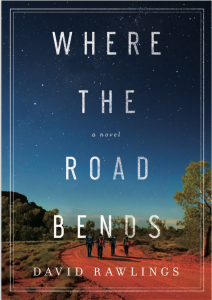by David Rawlings, @DavidJRawlings
Writers are a fragile lot, aren’t we? We beaver away in our imaginary worlds, creating and inhabiting spaces with characters of our own creation. And when we emerge, it can sometimes be daunting to work out if what we’ve created it worth reading.
We’re artists – even if you’re trying to make a living from writing, you’re an artist at heart. This means two things: you’re producing something from deep within meaning you’re vulnerable, and you’re moving in a subjective world where you can present your writing to three different people and get three completely different points of view.
But we need feedback if we’re going to improve.
There can be two challenges to getting the right feedback.
Firstly, it can be hard to get feedback that helps you understand your deficiencies. When Mom/Grandma/Great Aunt Fiona tells you your story is quite possibly the best thing ever written that can be really helpful to pump up your fragile writer’s self-esteem. It can give you support to keep going. But it doesn’t help us see where we can improve. And sometimes, if we’re unsure about our writing, there can be a pull to only trust positive sources for feedback.
Secondly, it can be hard to get feedback that gives us the right input. Sure, your neighbor might love to read your novel, but what if they don’t read much? Or your genre? Or know how to provide feedback?
I’m currently workshopping my fourth novel with a group of people I trust for feedback. I’ve put some things in place to help with that process. These rules aren’t to limit the feedback, they’re set to provide the right feedback; input I can use and implement. And they help my reader group by allowing them to be honest and helpful.
Maybe you could try these rules too, or at least consider them for the next round of feedback you’re seeking on your writing.
David’s seven rules for getting feedback
- Get enough people to balance out the outliers. If one reader doesn’t love a character it doesn’t mean you take out that character. But if five do, then you consider making a change.
- Pick a few people ahead of you on the writing journey to provide you with feedback (if they’ve got the time). I’m now three novels into my fiction career, and I’ve asked for input from authors who are 10, 20 or in one case 60 novels ahead of me. Why? Because the mistakes I’m making they’ve likely seen before. They know what works.
- Find readers who have a particular insight into a character or setting. My novel is based in-and-around churches and TV studios. I’ve now got readers helping who have an insight into both because it helps with the authenticity and believability that I’m going for with this story.
- Be specific with your questions. Maybe this is where I draw from my nearly 30 years of being a copywriter in business, but I’m very specific with the questions I ask. I don’t ask ‘did you like my story?’ I ask ‘did you like the pace, the descriptions, the dialogue or the characters?’ I can work with those answers. ‘Like’ or ‘don’t like’ is such a nebulous concept.
- Be specific with honesty. I always start conversations with people who read my novels by saying upfront that I need to know their feedback if it’s good, bad or indifferent. Especially bad or indifferent. And I tell them I won’t be offended if they don’t like something. It’s okay – it’s subjective remember? But …
- Every ‘I like it’ or ‘I don’t like it’ MUST come with a reason why. Sure, tell me you didn’t like my protagonist but I need to know why. Why is something I can work with. Why is something I can fix. The same goes for why a reader likes something. I had a number of readers tell me on The Baggage Handler that they liked the pace of the stories, mainly because of how I structured chapters to build toward cliffhangers at the end of each chapter. So that structure went into The Camera Never Lies, the follow-up novel. They didn’t like one particular character because he felt too shallow in the interactions with the Baggage Handler – so I deepened them.
- Choose people who represent your reader. I’ve written modern-day parables with The Baggage Handler, The Camera Never Lies and Where the Road Bends, so for those novels I talked to readers who would read stories like that anyway. If they only read Amish fiction, they aren’t necessarily going to give me what I can use. (Note: don’t discount these people, just realise that if they read nothing else their feedback is skewed AWAY from your potential reader).
So that’s how I approach getting feedback. Leave me a comment below if you’ve got any tips or tricks that work for you.
Four friends reconnect fifteen years after graduation on a promised trip to the Australian outback. Time has changed them. At graduation life was all about unfulfilled potential. Fifteen years down the track, it feels a lot like regret.
As they get lost in outback Australia they find more than harsh beauty of an unspoilt land… … they discover how the road of life delivered them to where they are now.
And getting back requires them to determine where they’ll go from here.

Based in South Australia, David Rawlings is an award-winning author, and a sports-mad father-of-three with his own copywriting business who reads everything within an arm’s reach. He writes that take you deeper into life, posing questions of readers to explore their own faith and how they approach life.
Where the Road Bends – a novel based in outback Australia – is out now! Why not take a virtual vacation during your time at home?
David’s debut novel – The Baggage Handler – won the 2019 Christy Award for First Novel. His second novel – The Camera Never Lies – focuses on honesty in relationships and is now available.
He is currently signed with Thomas Nelson and represented by The Steve Laube Agency.


